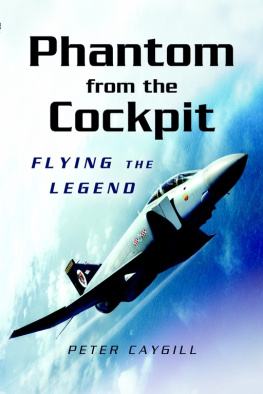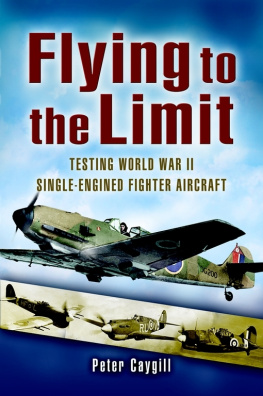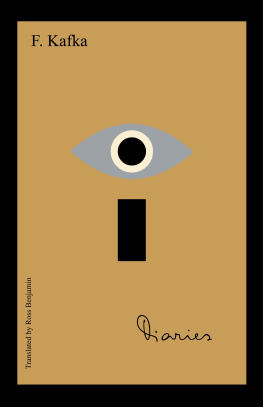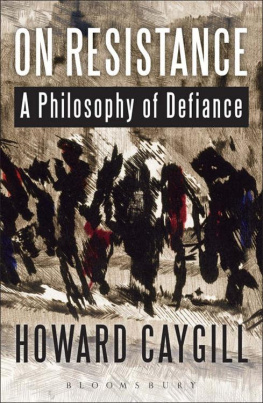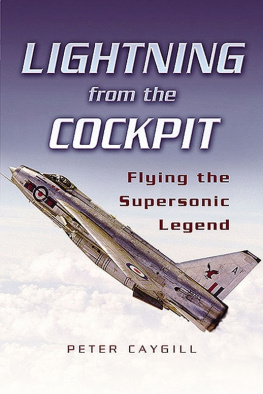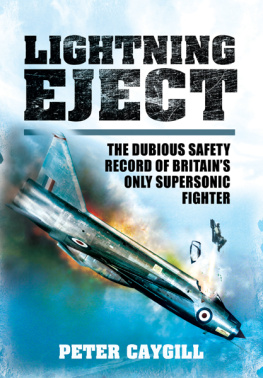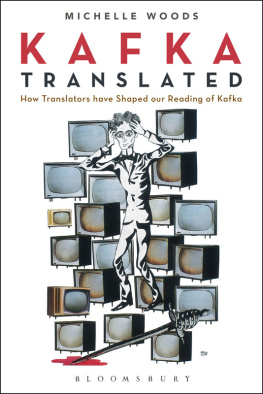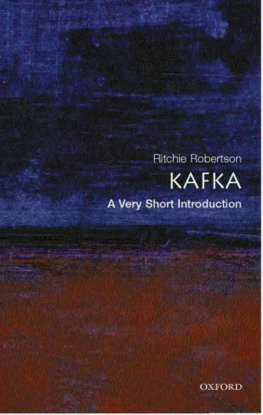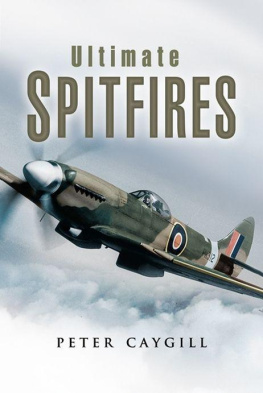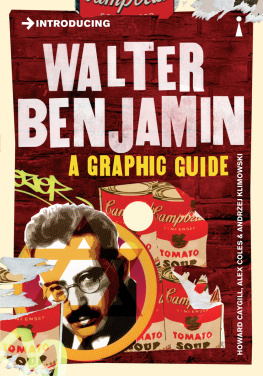Caygill - Kafka - in light of the accident
Here you can read online Caygill - Kafka - in light of the accident full text of the book (entire story) in english for free. Download pdf and epub, get meaning, cover and reviews about this ebook. year: 2017, publisher: Bloomsbury Publishing, genre: Romance novel. Description of the work, (preface) as well as reviews are available. Best literature library LitArk.com created for fans of good reading and offers a wide selection of genres:
Romance novel
Science fiction
Adventure
Detective
Science
History
Home and family
Prose
Art
Politics
Computer
Non-fiction
Religion
Business
Children
Humor
Choose a favorite category and find really read worthwhile books. Enjoy immersion in the world of imagination, feel the emotions of the characters or learn something new for yourself, make an fascinating discovery.
- Book:Kafka - in light of the accident
- Author:
- Publisher:Bloomsbury Publishing
- Genre:
- Year:2017
- Rating:4 / 5
- Favourites:Add to favourites
- Your mark:
- 80
- 1
- 2
- 3
- 4
- 5
Kafka - in light of the accident: summary, description and annotation
We offer to read an annotation, description, summary or preface (depends on what the author of the book "Kafka - in light of the accident" wrote himself). If you haven't found the necessary information about the book — write in the comments, we will try to find it.
Caygill: author's other books
Who wrote Kafka - in light of the accident? Find out the surname, the name of the author of the book and a list of all author's works by series.
Kafka - in light of the accident — read online for free the complete book (whole text) full work
Below is the text of the book, divided by pages. System saving the place of the last page read, allows you to conveniently read the book "Kafka - in light of the accident" online for free, without having to search again every time where you left off. Put a bookmark, and you can go to the page where you finished reading at any time.
Font size:
Interval:
Bookmark:


I have so much to do! In my four districts on top of my other work people fall off scaffoldings as if drunk, they fall into machines, all the beams topple, all the embankments subside, all the ladders slip and whatever someone passes up falls back and whatever is passed down is tripped over. And what headaches from all the girls in the porcelain factories who incessantly throw themselves down the stairs with towers of crockery.
LETTER TO MAX BROD, SUMMER 1909
A place I have never been before: breath comes differently, a neighbouring star shining brighter than the sun.
17TH ZRAU APHORISM
Whither are we moving? Away from all suns? Are we not plunging continually? Backward, sideward, forward in all directions? Is there still any up or down? Are we not straying as through infinite nothing? Do we not feel the breath of infinite space? Do we not need to light lanterns in the morning?
NIETZSCHE, THE GAY SCIENCE, 125
Your Father had an accident there; he was put in a pie by Mrs McGregor.
BEATRIX POTTER, THE TALE OF PETER RABBIT
For Edi
For ease of reference, citations from Kafka refer first to an available English translation and then to the German edition.
| A | America, trans. Willa and Edwin Muir in Franz Kafka: The Complete Novels, Vintage Books, London, 2008; Der Verschollene (Amerika), ed. Jost Schillemeit, S. Fischer Verlag, Frankfurt-am-Main, 2003 |
| AS | Amtliche Schriften, hsg. Klaus Hermsdorf, Akademie-Verlag, Berlin |
| C | The Castle, trans. Willa and Edwin Muir in Franz Kafka: The Complete Novels, Vintage Books, London, 2008; Das Schloss, in der Fasssung der Handschrift, hsg. Malcolm Pasley, S. Fischer Verlag, Frankfurt-am-Main, 2001 |
| D | The Diaries of Franz Kafka, ed. Max Brod, trans. Joseph Kresh and Martin Greenberg with the assistance of Hannah Arendt, Peregrine Books 1964; Tagebcher 19091923, S. Fischer Verlag, Frankfurt-am-Main, 1997 |
| L | Franz Kafka: Letters to Friends, Family and Editors, trans. Richard and Clara Winston, Oneworld Classics Ltd, London, 2011; Briefe 19021924, Fischer Taschenbuch Verlag, Frankfurt-am-Main, 1974 |
| F | Letters to Felice with Kafkas Other Trial by Elias Canetti, trans. James Stern, Elizabeth Ducksworth and Christopher Middleton, Penguin Books, Harmondsworth, 1978; Briefe an Felice, ed. Erich Heller and Jrgen Born, S. Fischer Verlag, Frankfurt-am-Main, 1967 |
| NI | Nachgelassene Schriften und Fragmente I in der Fassung der Handschriften, hsg. Malcolm Pasley, S. Fischer Verlag, Frankfurt-am-Main, 1993 |
| NII | Nachgelassene Schriften und Fragmente II in der Fassung der Handschriften, hsg. Jost Schillemeit, S. Fischer Verlag, Frankfurt-am-Main, 1992 |
| OW | Franz Kafka: The Office Writings, ed. Stanley Corngold, Jack Greenberg and Benno Wagner, Princeton University Press, Princeton, NJ, 2009; Amtliche Schriften, hsg. Klaus Hermsdorf and Benno Wagner, Fischer Verlag, Frankfurt-am-Main, 1999 |
| S | The Complete Stories, ed. Nahum N. Glatzer, Schocken Books Inc, New York, 1971; Die Erzhlungen, hsg. Roger Hermes from the Kritische Ausgabe, S. Fischer Verlag, Frankfurt-an-Main, 2007 |
| T | The Trial, trans. Willa and Edwin Muir in Franz Kafka: The Complete Novels, Vintage Books, London, 2008; Der Process, in der Fassung der Handschrift, hsg. Malcolm Pasley, S. Fischer Verlag, Frankfurt-am-Main, 2008 |
| WP | Wedding Preparations in the Country and Other Posthumous Prose Writings, trans. Ernst Kaiser and Eithne Wilkins, Secker & Warburg, London, 1973 |
Near midnight on 29 June 2009 a goods train derailed outside the station of the Italian resort of Viareggio. Its cargo of natural gas exploded causing many deaths and terrible injuries. Among the victims were people sleeping at home, a couple riding by on a motor-scooter, a man walking back from an evening with friends at a bar Id passed through the station a few hours before, but this accident was not meant for me. It provoked a furious outburst of attempts to make sense of it: a terrorist attack, an act of God, negligent maintenance of the track or rolling-stock all stories intent on explaining away the accident. Yet none could give any satisfactory reason why precisely those individuals had to be called to their singular fates on that summers night. None could convincingly point beyond harsh contingency to that semblance of necessity some hint of justice or at least responsibility that would lend meaning to the accident.
Waking the next day in a guest house in nearby Montignoso, I saw on the wall a framed photograph of a jetty on Lake Ullswater in the English Lake District. An improbable enough image to decorate a room in an Italian resort, it also had to be the scene of my earliest memory, the jetty from where I fell as a child into the lake and almost drowned. What are the chances of that reminder of a thwarted death by drowning appearing on that far away wall decades later at precisely that moment? So small that the highly improbable but evidently not-impossible chain of infinitesimal causes that brought me before this image assume the aspect of haunted necessity. And with this a portal opens onto what Kafka described as the world of insurance or that uncanny realm of predictable improbabilities governed by the law of the necessary accident.
This book locates Kafka at the junction of three ways of negotiating the modality of the accident: philosophy, fiction and insurance. It asks what happens to the received ways of making sense of the accident in philosophy and fiction when confronted with the modern world of insurance, or the regime of security and the management of chance that provides the infrastructure for the social, economic and political institutions of modernity. It suggests a difficult continuity between Kafkas writing by day as a senior official and theorist in the Workers Accident Insurance Institute for the Kingdom of Bohemia in Prague and his fictional writing by night. And it locates his ambivalent relation to philosophy not only in terms of the old quarrel between philosophy and poetry evoked by Plato in The Republic, but also with respect to the crisis of truth and fiction provoked by both the sublime thought of the death of God and the mundane management of the accident by the theory and institutions of insurance. What I hope emerges is a Kafka quite different from the twentieth centurys fabulist of the law whose writing dwells in the darkness of domination, a writer of the accident in every sense, a writer of defiant light.
My thanks are due to the audiences who responded to versions of parts of this book and to my friends, students and colleagues at the Centre for Research in Modern European Philosophy, Kingston University, the Department of Philosophy at the University of Paris VIII, IDSVA and to the members of the Digital Cultures Research Laboratory at the Leuphana University Lneburg who gave me the chance to finish the book and test my translations. Special and personal thanks to my editor Liza Thompson and to all at Parnithos, Molin Nuovo and Regata Run Drive. Finally, my apologies for any errors of fact and interpretation in what follows; had I known where these accidents were to happen I would surely have taken better measures to prevent them.
Next pageFont size:
Interval:
Bookmark:
Similar books «Kafka - in light of the accident»
Look at similar books to Kafka - in light of the accident. We have selected literature similar in name and meaning in the hope of providing readers with more options to find new, interesting, not yet read works.
Discussion, reviews of the book Kafka - in light of the accident and just readers' own opinions. Leave your comments, write what you think about the work, its meaning or the main characters. Specify what exactly you liked and what you didn't like, and why you think so.


